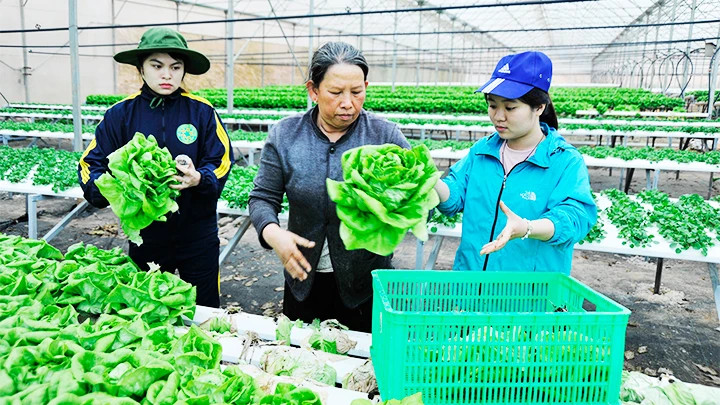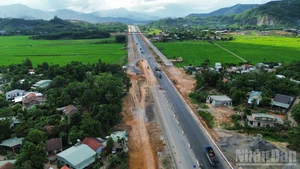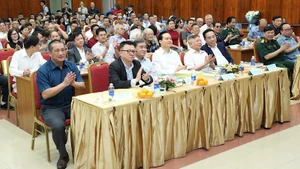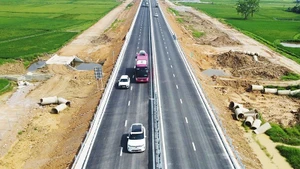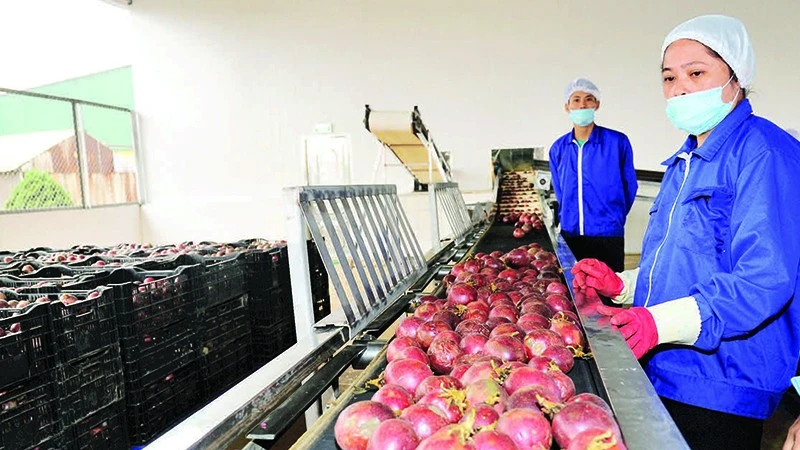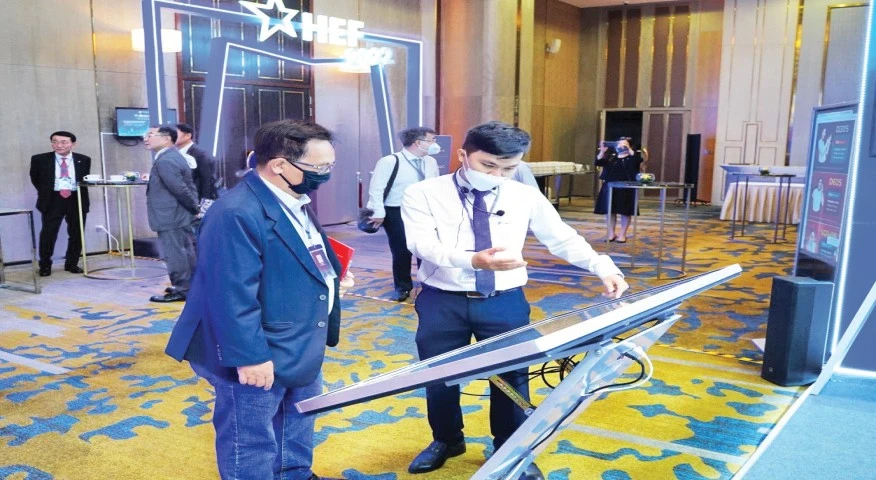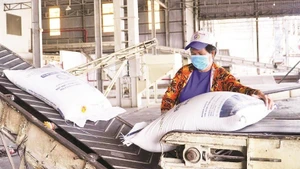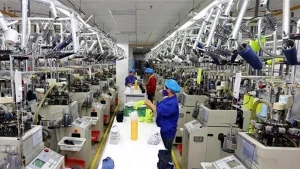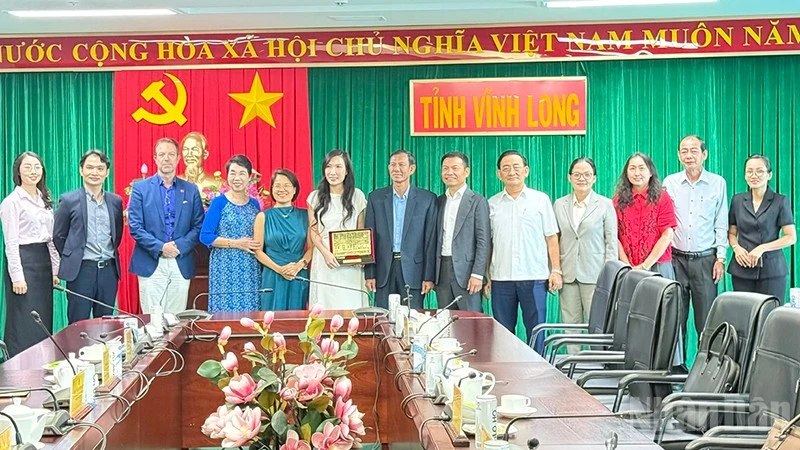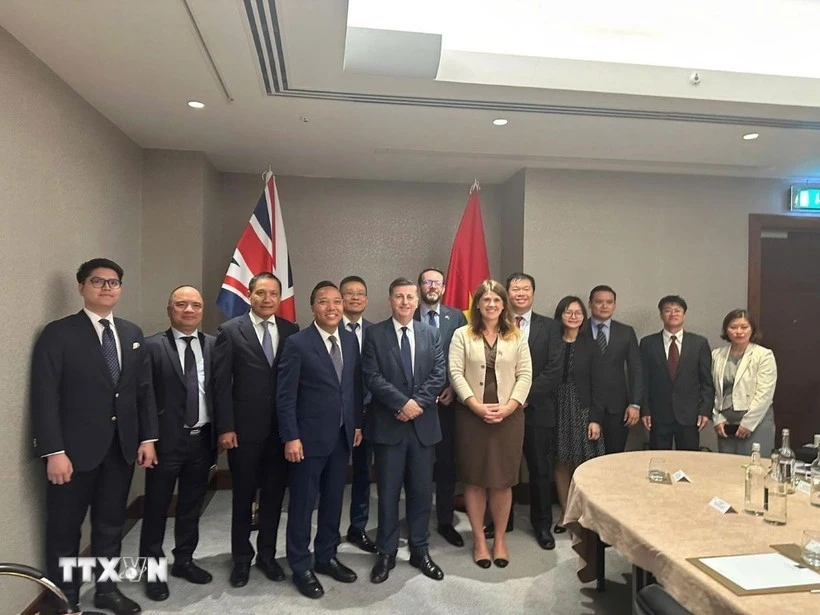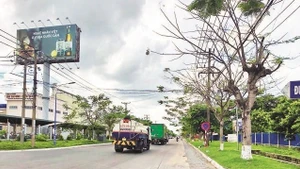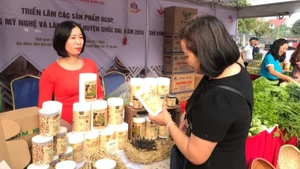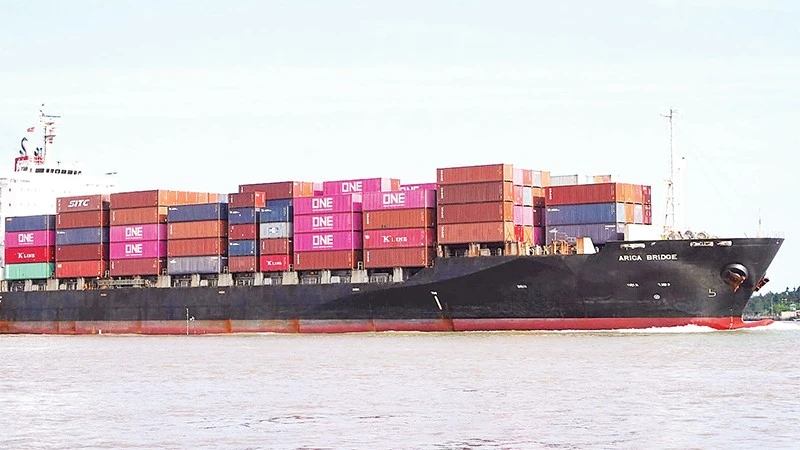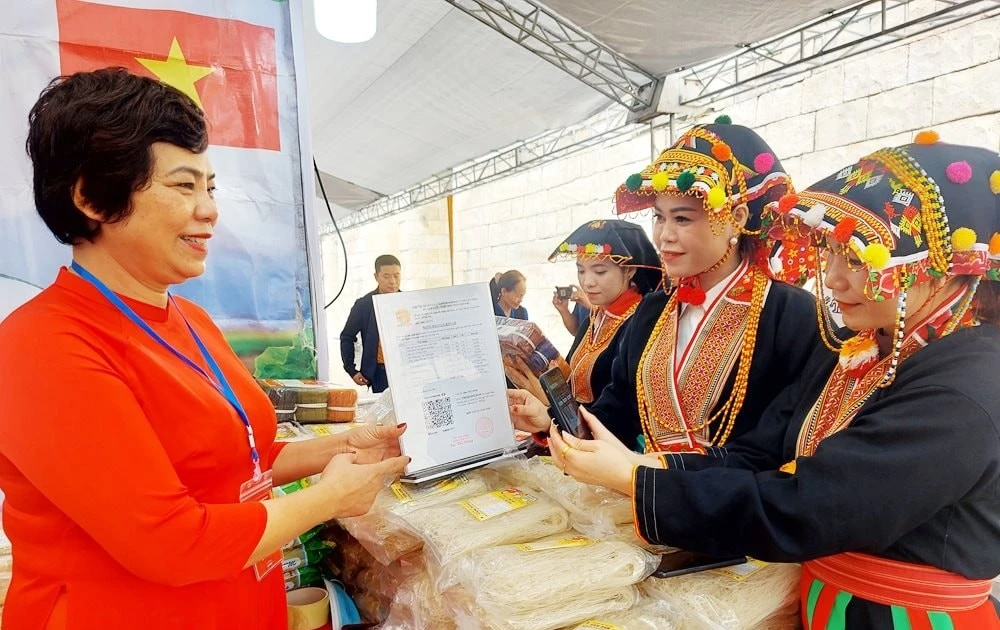Legal gaps in agricultural land
Recently, the real estate market has experienced declining growth, even “freezing,” due to a supply-demand imbalance (with an oversupply in the high-end segment and a shortage in the affordable segment) due to reduced post-pandemic purchasing power and the negative impact of the corporate bond market, as well as prolonged legal bottlenecks. According to the Vietnam Association of Realtors (VARS), 70% of the difficulties in the current real estate market stem from the "bottlenecks" in the existing legal system.
Specifically, after more than 10 years of implementation, the Land Law 2013 has revealed many shortcomings and overlaps. The quality of land use planning and plans is not high and lacks coherence, comprehensiveness, systematic approach, and long-term vision, so land has not yet become an important resource for sustainable development. Land recovery, compensation, support, and resettlement have not always ensured a balance of interests between the state, businesses, and citizens. The land use rights market is unstable, and land finance still has many issues, causing difficulties in practical implementation.
Statistics from the VARS show that 1,286 real estate companies dissolved in 2023, an increase of 7.7% compared to 2022 (which saw a 38.7% increase compared to 2021). Meanwhile, 3,705 companies suspended their operations, up 47.4%. The number of newly established companies reached 4,725, a decrease of 45%, making real estate the only sector in which the formation of new companies declined in 2023. On average, around 107 real estate companies went bankrupt each month.
On March 11, 2024, at a meeting of the Prime Minister's Task Force to review and expedite the removal of difficulties and obstacles in implementing real estate projects for localities and businesses, the Ministry of Construction reported that Ho Chi Minh City has 143 real estate projects, Hanoi has 246 projects, Hai Phong has 4 projects, Binh Dinh has 16 projects, and Can Tho has 34 projects awaiting the Task Force's "rescue”.
In this context, agricultural real estate has been also affected. On the other hand, the agricultural real estate market has historically been a less attractive "niche" market for transactions because agricultural land is considered a means of production rather than a commodity, and regulations on this segment have remained limited and inadequate.
This has led to consequences such as fragmented and dispersed farmland, with most small-scale farming household operations; the process of land consolidation and accumulation has been slow; and agricultural production profits are low, posing a major barrier to developing the agricultural economics, especially in high-tech and large-scale agriculture.
At a conference held by the Ministry of Agriculture and Rural Development on March 2023 to gather opinions on the draft revised Land Law, delegates suggested that the revised Land Law should include policies to encourage the accumulation of agricultural land to help businesses establish their own raw material areas. The law should also allow businesses, public units, and agroforestry companies to autonomously lease, transfer, and use agricultural land rights for joint ventures and cooperative production.
Notably, Dr. Ha Cong Tuan, former Deputy Minister of Agriculture and Rural Development, said the creation of a "bank of agricultural land use rights" in necessary to accelerate the process of land accumulation and concentration and establish a healthy land use rights market.
Before the Land Law 2024 was passed, Nguyen Nhu So, Chairman of the Board of Directors of Dabaco Group JSC and a National Assembly deputy of Bac Ninh Province, frequently spoke on this issue in various National Assembly forums.
As the chairman of a high-tech agricultural group, So recommended increasing investment and establishing strong mechanisms to support agricultural enterprises by allowing localities to plan and accumulate large and clean land funds to attract investment in high-tech agriculture according to the strategy of “building the nest to welcome the eagles” and address the urgent and difficult issue of securing land for investment.
New policies expected to drive new momentum
On January 18, 2024, after four consecutive sessions of drafting and finalising, the 15th National Assembly officially passed the Land Law 2024 during its 5th extraordinary session. The law will take effect on January 1, 2025.
Subsequently, on June 29, 2024, during its 7th session, the 15th National Assembly passed amendments to several articles of the Land Law 2024, the Housing Law 2023, the Real Estate Business Law 2023, and the Credit Institutions Law 2024. The key change is that the three real estate laws (and two related provisions in the Credit Institutions Law 2024) will take effect on August 1, 2024, five months ahead of the original plan of January 1, 2025.
This decision is seen as a wise move, accelerating the institutionalisation of the directives from the Party and the Politburo regarding land resources for socio-economic development, reflecting the determination of the government and related agencies to quickly implement land and housing policies into practical application.
Specifically, the fact that the Land Law 2024 took effect on August 1 demonstrates a well-prepared legal framework and a readiness to resolve legal obstacles and unlock resources for the real estate market, especially for agricultural real estate.
Under the new Land Law, Article 177 increases the land transfer limit for agricultural land for households and individuals to no more than 15 times the land allocation limit (up from 10 times under the Land Law 2013). Article 179 extends the lease period for public land managed by the commune-level People's Committee (often referred to as the 5% land fund) to 10 years, replacing the 5-year limit of the Land Law 2013.
Additionally, Article 194 of this law regulates “investment projects for the construction and operation of infrastructure for concentrated agricultural, forestry, and aquaculture production and processing zones” to allow land leases or project implementation.
These new regulations are expected to increase opportunities for land consolidation for households and individuals engaged in large-scale agricultural production. They also provide individuals with stable and secure land leases for investment and production. Moreover, they create a legal framework to establish concentrated infrastructure in agriculture (tentatively called agro-industrial parks, with similarities to industrial parks), making it easier for businesses to access "clean" land for agricultural investment and production.
Another significant change in the Land Law 2024 related to agricultural land is the concept of "multi-purpose land use", allowing agricultural land to be used in combination with commercial, service, livestock, and medicinal plant cultivation purposes.
Notably, Article 45 of the Land Law 2024 allows individuals who do not directly engage in agricultural production to receive transfers or gifts of land use rights for rice cultivation. However, if the transfer exceeds the land limit, they must establish an economic organisation and devise a plan for using the rice cultivation land, except in cases where the recipient is a legal heir.
Nguyen Anh Que, Chairman of the Board of Directors of the G6 Group and a member of the Vietnam Real Estate Association, emphasised that allowing individuals and organisations which are not directly involved in agricultural production to acquire agricultural land is a standout feature of the Land Law 2024 compared to the Land Law 2013.
This regulation institutionalises the Party and State's policy on land consolidation, creating large fields suitable for modern and high-level production, thereby increasing land use efficiency and productivity. “This regulation will also facilitate land clearance, especially for projects where businesses are the investors”, said the leader of G6 Group, adding that the agricultural real estate segment will likely develop after the Land Law 2024 comes into effect.
Similarly, from the perspective of Nguyen Tuan Anh, a member of the National Assembly's Social Affairs Committee, the new Land Law allows individuals who do not directly engage in agriculture to transfer, receive as gifts, or inherit rice land use rights under conditions which ensure that the preservation of agricultural land area aligns with the current trends towards high-tech agriculture and large-scale farming. It facilitates organisations and businesses in executing larger projects, thereby increasing the value of agricultural land use.
Commenting on the potential of agricultural land and the agricultural economics following the implementation of the 2024 Land Law, Le Hoang Chau, Chairman of the Ho Chi Minh City Real Estate Association (HoREA), stated that the Land Law 2024 promotes more efficient use of agricultural land to advance the agricultural sector, enrich farmers, and modernise rural areas.
“This will have a positive impact on both the economy and the real estate market during urbanisation and the development of rural residential areas, increasing the demand for housing among rural residents, especially among affluent farmers,” Chau stated.
